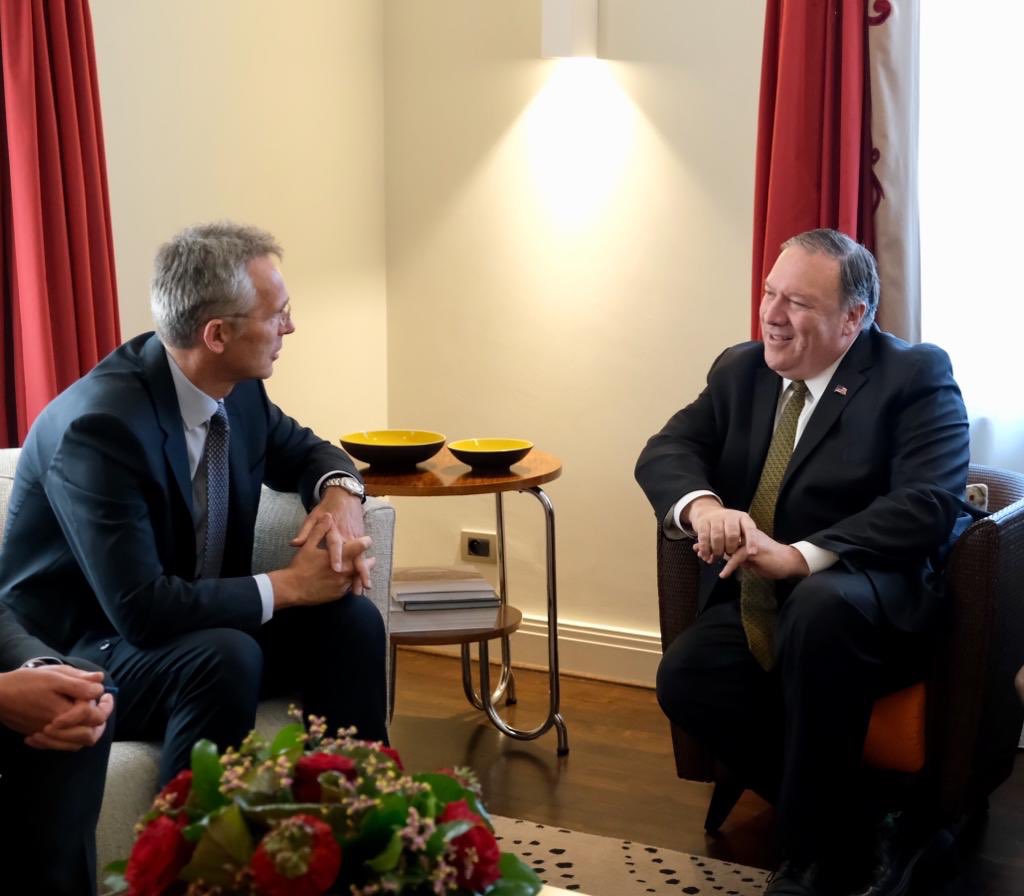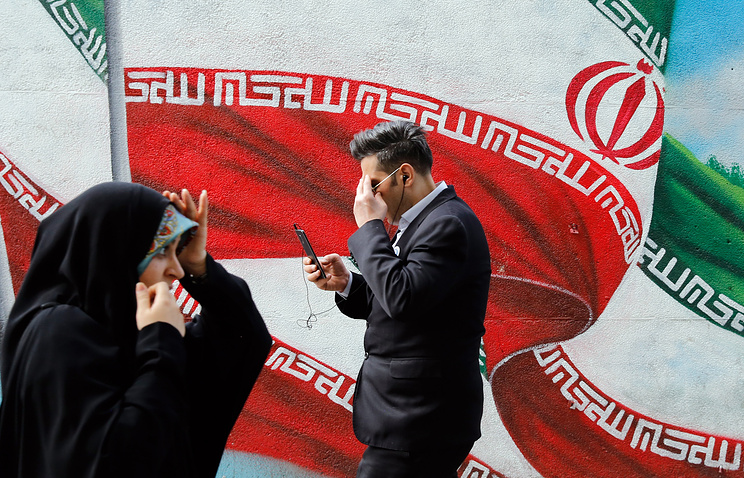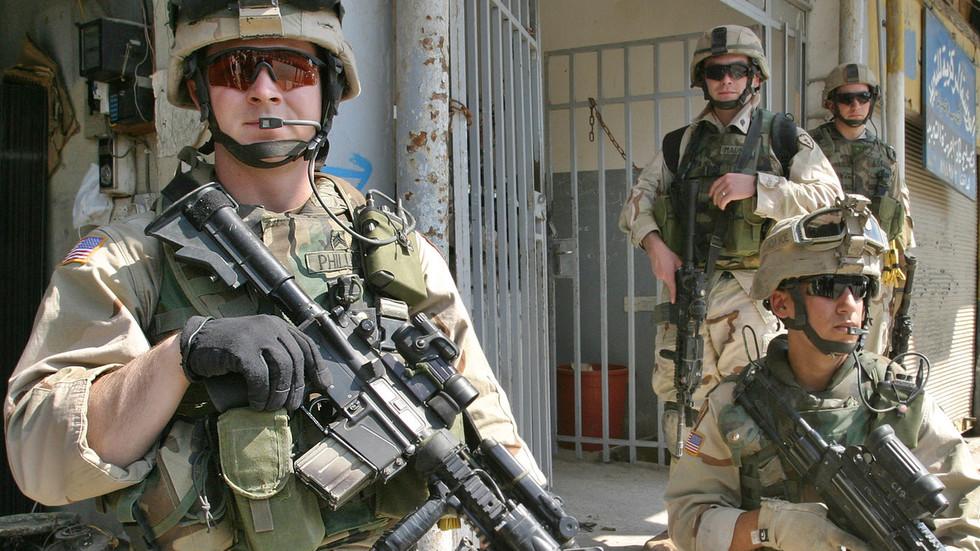From
Stratfor
Snip Graphis Maps 5-6 minute Read:
To understand Iran, you must
begin by understanding how large it is. Iran is the
17th largest country in world. It measures 1,684,000 square kilometers.
That means that its territory is larger than the combined territories of France, Germany, the Netherlands, Belgium, Spain and Portugal — Western Europe. Iran is the
16th most populous country in the world, with about 70 million people. Its population is
larger than the populations of either France or the United Kingdom.
Under the current circumstances, it might be useful to benchmark Iran against Iraq or Afghanistan. Iraq is 433,000 square kilometers, with about 25 million people, so Iran is roughly four times as large and three times as populous.
Afghanistan is about 652,000 square kilometers, with a population of about 30 million. One way to look at it is that Iran is 68 percent larger than Iraq and Afghanistan combined, with 40 percent more population.
More important are its topographical barriers. Iran is defined, above
all, by its mountains, which form its frontiers, enfold its cities and describe its historical heartland.
To understand Iran, you must understand not only how large it is but also how mountainous it is.
Current
Zarif plays down tensions as IRGC chief says Iran, US in midst of intel war
Today, 6:20 pm
Iranian FM indicates Tehran not seeking conflict; Hossein Salami says US political system ‘like the World Trade Building that collapses with a sudden hit’
Iranian officials gave mixed signals on Saturday as tensions between Washington and Tehran continued to flare over US military moves in the region.
Iranian Foreign Minister Mohammad Javad Zarif discounted the prospect of a new war in the Middle East, as the new head of Iran’s Islamic Revolution Guard Corps said the US and Iran were already locked in an intelligence war.
Concerns about a possible conflict have flared since the
White House ordered warships and bombers to the region to counter an alleged, unexplained threat from Iran that has seen the US order nonessential diplomatic staff out of Iraq. Tensions have also ratcheted up in the region after authorities alleged that a sabotage operation targeted four oil tankers, including two belonging to Saudi Arabi, on Sunday off the coast of the United Arab Emirates, and Iran-aligned rebels in Yemen claimed responsibility for a drone attack Tuesday on a crucial Saudi oil pipeline.
Iran-US relations hit a new low last year after US President Donald Trump pulled out of a 2015 nuclear deal and reimposed unilateral sanctions that had been lifted in exchange for Tehran scaling back its nuclear program.
Zarif said Saturday that Iran was “certain… there will not be a war since neither we want a war nor does anyone have the illusion they can confront Iran in the region,” he told state-run news agency IRNA at the end of a visit to China.
Meanwhile, IRGC head Major General Hossein Salami said at a meeting Saturday that Iran and the US were in the “midst of a full-scale intelligence war.” The semi-official Fars news agency also quoted Salami using 9/11 as a metaphor for America’s political system, describing it “like the World Trade Building that collapses with a sudden hit.”
“This is a combination of psychological warfare, cyber operations, military mobility, public diplomacy and instilling fear,” the semi-official news agency ISNA quoted Salami as saying.
“America’s majesty is on decline and it is about to reach its end, and at the same time, we must watch out for probable dangers in such circumstances,” he said.
“We can be victorious over the enemy in the intelligence battlefield,” Salami said, according to a translation in the Hebrew news site Ynet.
Earlier this week, Salami said Iran was “on the cusp of a full-scale confrontation” with the enemy.
“This moment in history — because the enemy has stepped into the field of confrontation with us with all the possible capacity — is the most decisive moment of the Islamic revolution,” added Salami, who was tapped as the new IRGC chief last month.
In the US, President Donald Trump took a soft tone this week, a day after tweeting that he expected Iran to look for talks. Asked if the US might be on a path to war with the Iranians, the president answered, “I hope not.”
The tone contrasted with a series of moves by the US and Iran that have sharply escalated tensions in the Middle East in recent days. For the past year, National Security Adviser John Bolton and Secretary of State Mike Pompeo have been the public face of the administration’s “maximum pressure” campaign against Tehran.
Iranian officials remain skeptical of Trump’s intentions.
Imposing sanctions while seeking talks is like “pointing a gun at someone and demanding friendship,” said Iranian Gen. Rasool Sanaeirad, according to the semi-official Mehr news agency.
That comment was echoed by Majid Takht-e Ravanchi, Iran’s ambassador to the United Nations.
“They want to have the stick in their hands, trying to intimidate Iran at the same time calling for a dialogue,” Ravanchi told CBS. “What type of dialogue is this?”
For his part, Trump criticized the media in a tweet Friday about Iran and added: “At least Iran doesn’t know what to think, which at this point may very well be a good thing!” Since the White House’s decision May 5 to deploy the bombers and aircraft carrier, the US government has declined repeated requests to publicly explain the new threat they perceive coming from Tehran.
Zarif later responded to Trump on Twitter.
“We in Iran have actually known what to think for millennia_and about the U.S., since 1953,” the diplomat wrote, referring to the CIA’s involvement in the overthrow of Iran’s prime minister at the time. “At this point, that is certainly ‘a good thing!'”
Then Trump appeared minutes later respond to Zarif’s tweet.
“With all of the Fake and Made Up News out there, Iran can have no idea what is actually going on!” the US president wrote.
On Friday, Zarif arrived in Beijing to speak to his Chinese counterpart. China was one of the signatories on Iran’s 2015 nuclear deal with world powers, which saw it limit its enrichment of uranium in exchange for the lifting of crushing economic sanctions.
“So far, the international community has mainly made statements instead of saving the deal,” Zarif said, according to a report by the state-run IRNA news agency. “The practical step is quite clear: economic relations with Iran should be normalized. This is what the deal clearly addresses.”
Foreign Minister Wang Yi told Zarif that China hopes the Iran nuclear deal can be “fully implemented.”
“China firmly opposes unilateral sanctions and the so-called ‘long arm’ jurisdiction imposed by the United States on Iran,” Wang said, according to China’s Xinhua state news agency. He pledged to maintain the nuclear deal and work with Iran to eliminate “complicated disturbing factors,” Xinhua said.
Zarif earlier visited Japan, a major importer of crude oil from the Persian Gulf.
Iran recently said it would resume enriching uranium at higher levels if a new nuclear deal is not reached with Europe by July 7. That would potentially bring it closer to being able to develop a nuclear weapon, something Iran insists it has never sought.
The USS Abraham Lincoln and its carrier strike group have yet to reach the Strait of Hormuz, the narrow mouth of the Persian Gulf through which a third of all oil traded at sea passes. A Revolutionary Guard deputy warned that any armed conflict would affect the global energy market. Iran long has threatened to be able to shut off the strait.
“If a war happens, the world will suffer from [a] problem in energy supply,” Gen. Saleh Jokar said, according to a report Friday by the semi-official Fars news agency.
He also said Iran’s short-range missiles “can easily reach present warships in the Persian Gulf,” while noting the 2,000-kilometer (1,240-mile) range of the Islamic Republic’s ballistic missiles can reach across the wider Persian Gulf.
The US Navy’s 5th Fleet, which patrols the Persian Gulf from its base in Bahrain, did not immediately respond to a request for comment. However, the USS McFaul and the USS Gonzalez, two Arleigh Burke-class destroyers, transited the strait on Thursday without incident.
A challenge for Trump
Iran poses a particular challenge for Trump. While he talks tough against foreign adversaries to the delight of his supporters, a military confrontation with Iran could make him appear to be backtracking on a campaign pledge to keep America out of foreign entanglements.
Lawmakers and allies, however, worry that any erratic or miscalculated response from Trump could send the US careening into conflict.
Trump pulled the US out of the Iran nuclear deal last year and reinstated sanctions on Tehran that are crippling its economy.
Tensions rose dramatically May 5, when Bolton announced that the USS Abraham Lincoln Carrier Strike Group would be rushed from the Mediterranean to the Persian Gulf ahead of schedule in response to “a number of troubling and escalatory indications and warnings,” without going into details.
On Tuesday, the Senate will receive a classified briefing on Iran, according to Jim Risch of Idaho, the chairman of the Foreign Relations Committee. The House has requested a classified briefing as well.
House Speaker Nancy Pelosi said briefings are necessary because informing leaders “is no substitute for the full membership of the Congress.” She said a failure to inform lawmakers is “part of a pattern” for the Trump administration “that is not right,” because the power to declare war resides with Congress.
“I hope that the president’s advisers recognize that they have no authorization to go forward in any way” against Iran, Pelosi said.
Trump has dismissed suggestions that any of his advisers, particularly Bolton, are pushing him into a conflict.
“John has strong views on things, but that’s OK. I actually temper John, which is pretty amazing isn’t it?” Trump said recently when asked if he was satisfied with Bolton’s advice. “I have different sides. I mean, I have John Bolton, and I have other people that are a little more dovish than him. And ultimately I make the decision.”
Mark Dubowitz, an advocate of a hardline policy toward Iran and chief executive of the Foundation for Defense of Democracies, said, “Trump is smart to let these advisers play the roles they play and it really does help him lay the table for negotiation, but ultimately, it comes back to his ability to oversee a negotiation and do so wisely and judiciously, and that’s an open question.”
Trump agreed with critics of the 2015 nuclear deal that it didn’t address Tehran’s work on ballistic missiles or its support of militant groups around the region. His administration reinstated sanctions that had been lifted under the deal — the Europeans and other signatories are still in it — and has piled on more.
Trita Parsi, an adjunct associate professor at Georgetown University who advised the Obama administration on Iran, thinks the Iranians are trying to exploit Trump and Bolton’s divergence on foreign policy issues.
He cited a recent tweet from Hessamoddin Ashena, an adviser to Iranian President Hassan Rouhani, directed squarely at Trump and Bolton, who is easily recognized in public by his white, bushy mustache.
“You wanted a better deal with Iran. Looks like you are going to get a war instead. That’s what happens when you listen to the mustache,” the Iranian adviser said.
Iran dismisses possibility of conflict, says does not want war
https://twitter.com/Reuters/status/1129757597244960768





